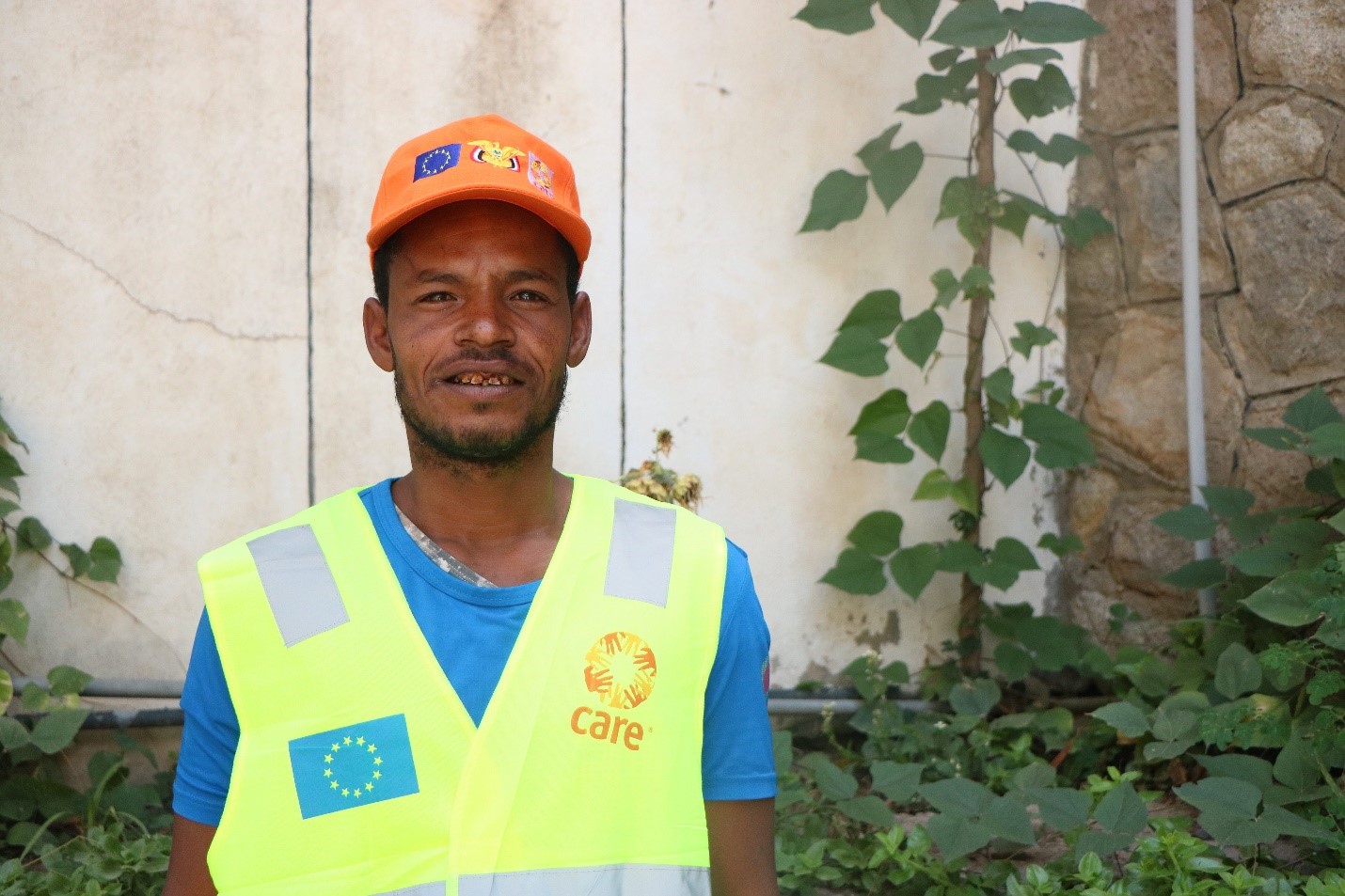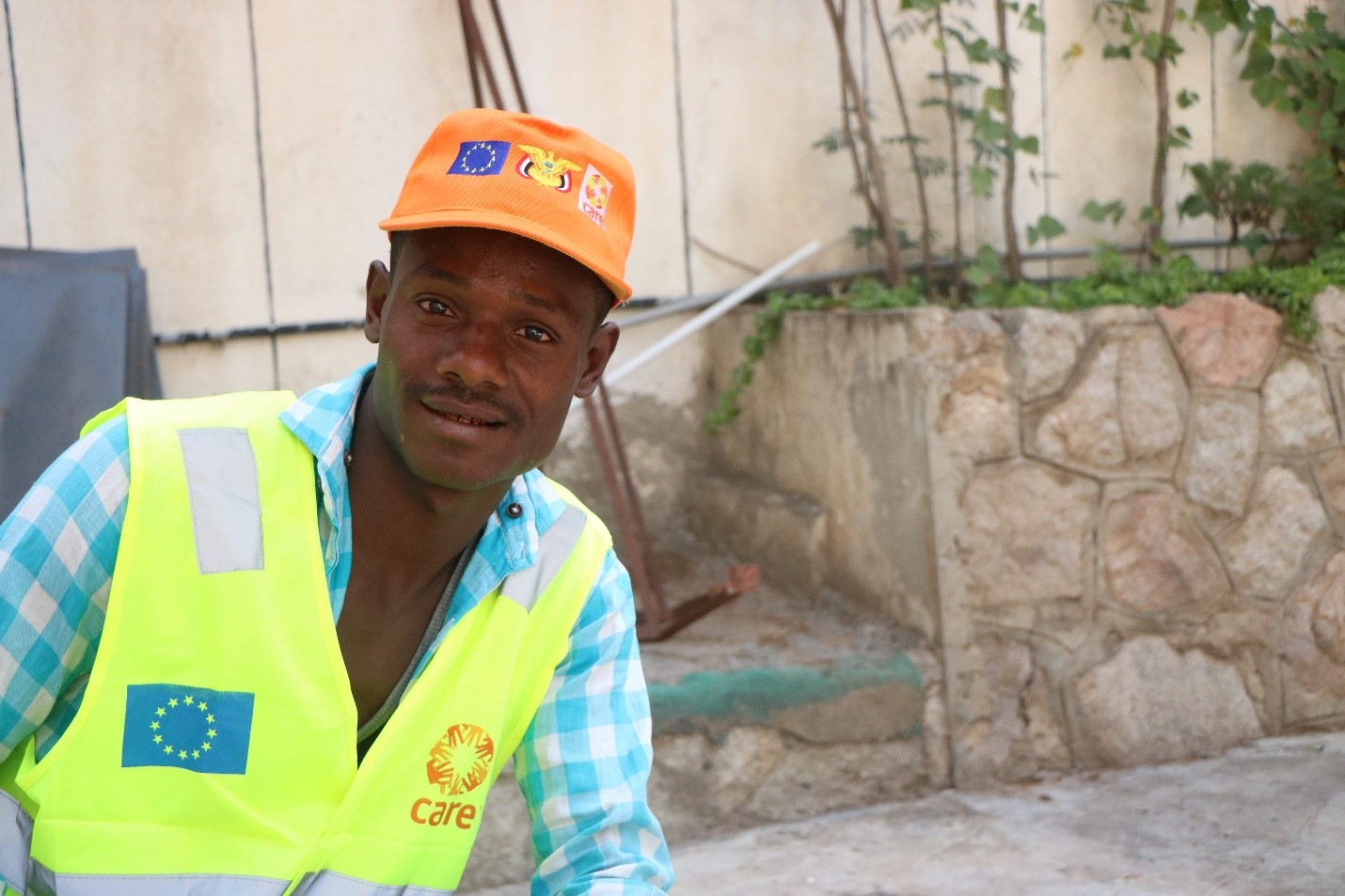Natural and man-made crises can cause great environmental damage to land and natural resources, in addition to polluting air and water, which affects people’s health and lifestyle. After more than five years of the tragic conflict in Yemen, thousands of residents of Taizz, to the southwest of the country, suffer from tons of garbage scattered in the streets, which pose many health risks for them. Like other public sector workers in Yemen, street cleaners have stopped receiving a regular monthly salary, but even during the COVID-19 pandemic, they kept working hard to make their cities safe and clean.
Ali, 36 years old, is a father of six children. Five years ago, Ali and many other residents of Kalabah sub-district of Taizz governorate fled their homes due to the fighting, without taking anything except the clothes they were wearing. His eyes filled with tears, he says, “This war made me homeless in a blink of an eye.” Ali’s family walked on foot for three hours in search of safety after their home was destroyed.
Ali works with the Cleaning and Improvement Fund, which is responsible for waste management in Taiz, and receives irregular payments. With no stable income, he and his family are forced to live in a small one-room house with no proper latrine. Recently he started to work as a cleaner for a daily wage in order to provide food, medicine and other essentials for his family. Some days, Ali couldn’t get any work, so his family would go without food. “Some nights my children cried for food, which broke my heart,” he says. “I used to collect food from the garbage to avoid that heartbreaking feeling. It was a means of survival.”

